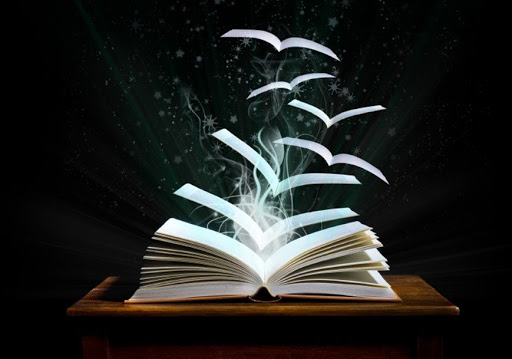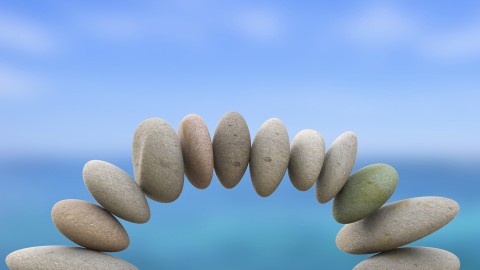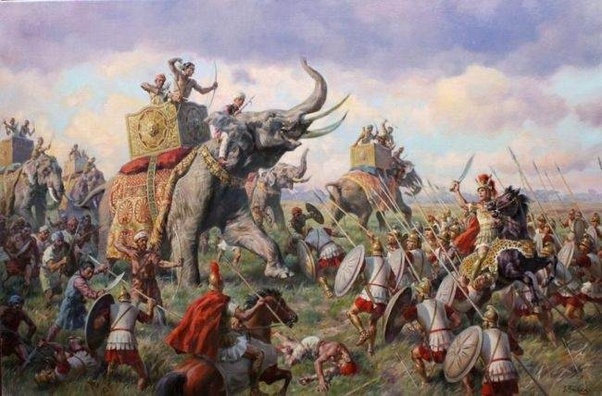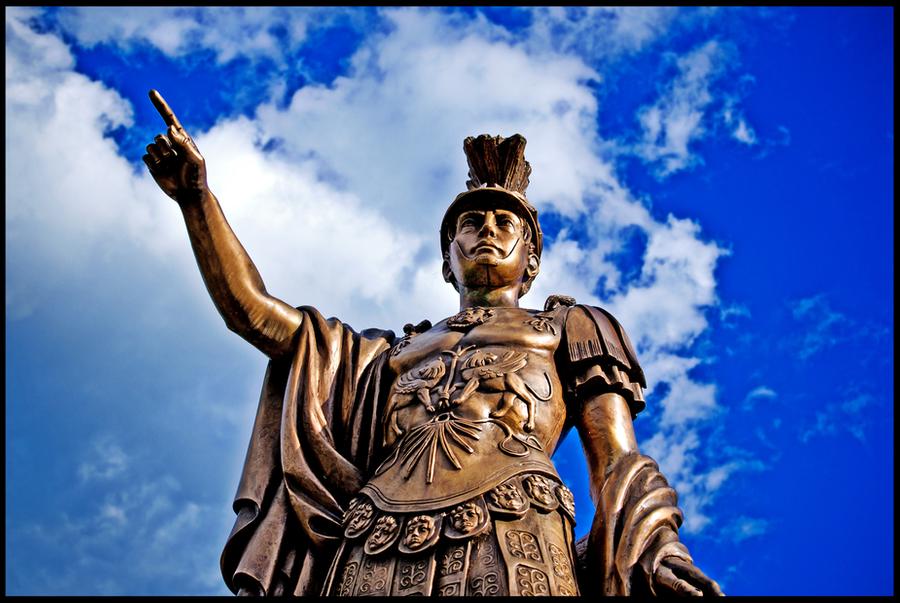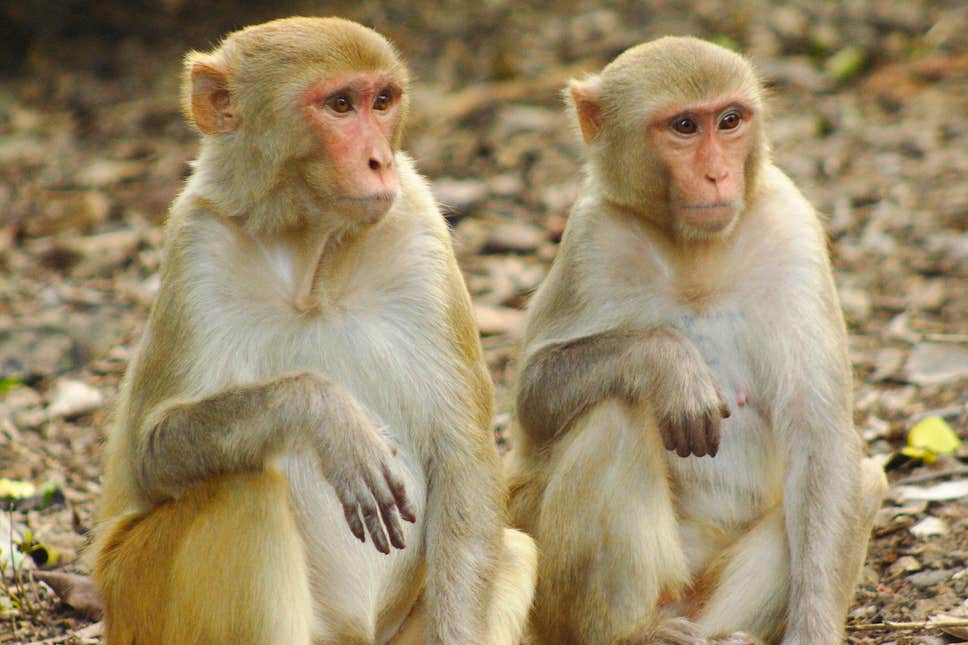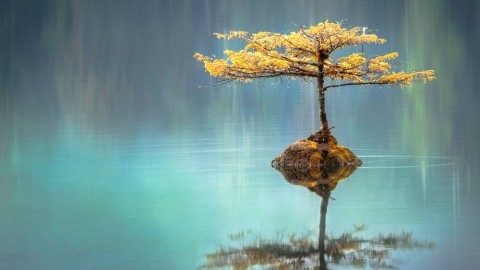A farmer wants to divide his 17 horses among his three sons. According to the farmer, the oldest son should get half of the horses, the middle son should get one third of the horses and the youngest son should get one ninth of the horses.
When their father died they were not able to divide the horses as the result was coming in fractions. Now you think with all your scholastic learning and intellect how can you carry out the will.
What was the advice given and how the group of horses were divided?
All the intelligent people failed to solve this will. So they went to a famous Ashram where all the children of renowned people of society used to study. At the end of the education, Guruji used to take examinations. Every method of examination was different. This time Treasure Hunt was organized. In the morning Guruji gave all the instructions, leads and maps to all the exam going students. Every student ran to find the thing of the treasure hunt. After two hours students started returning. Guruji asked every student what he found? Every student answered, “A mirror.”
All students returned except one. Many hours passed. At sunset he was visible at the horizon. He was filled with joy as if drunkard. He was walking as if winds were blowing him. When he reached Guruji he bowed down. Until Guruji uplifted him. Guruji asked, “What you found?” He answered, I found myself, first in the mirror at the end of the treasure hunt and then everywhere as if the whole world has become the mirror. Guruji announced, “Everybody has failed except this student.”
He continued, “Education is given as information of all the knowledge we have gained till now. We can only give knowledge or we can tell how this knowledge or information has been used previously by many people. But we cannot tell you or teach you how you will use this. This has to come from you only. The knowledge or information which we give you makes you intellectual but how you use this makes you intelligent. In life only your intelligence works. And until you become intelligent you will not pass. Everybody found the mirror at the end of the treasure hunt. But what is the use of a mirror, how to use a mirror and what mirror means to me is intelligence.”
Then Guruji asked all the students to solve this will of the farmer. All who found the mirror, they were stuck to solve this will. The student who has seen himself has requested Guruji to give him one more horse to solve this will. Guruji agreed.
17 horses to be divided among three sons with the ratio as given.
1st son — half of the horses (17/2)=8.5
2nd son — one third of horses (17/3)=5.66
3rd son — one ninth of horses (17/9)=1.88
Now all the results are in fraction so the horses cannot be distributed like this. What the student did was simple. He will add Guruji’s horse to the group of horses. So in total we have 18 horses now. Now let’s see the scenario again.
1st son — half of the horses (18/2)=9
2nd son — one third of horses (18/3)=6
3rd son — one ninth of horses (18/9)=2
So in total 17 horses will get distributed among the three sons and the student returns Guruji’s horse back to him.
Technology is based on higher education, and whatever its benefits, higher education has almost totally lost interest in wisdom. Wisdom isn’t the same as knowledge. You can collect facts that lead to the understanding of things, but wisdom is different. I’d define it as a shift in allegiance, away from objective knowledge toward self-awareness.
The Greek dictum “Know thyself” doesn’t make sense if the self you mean is the ego-personality, with its selfish demands, unending desires, and lack of happiness. Another self is meant, which isn’t a person’s ego but a state of consciousness. “Self” might not even be a helpful term, despite the age-old references to a higher self identified with enlightenment. It is more helpful to say that the pursuit of wisdom is about waking up.
Waking up is a metaphor for the conscious life, and the conscious life is what wisdom leads to. Every day we are driven by unconscious impulses and desires, and unexamined processes go on beneath the surface of the mind that lead to anxiety, depression, low self-esteem, self-destructive behavior, and every kind of pointless discord, from household tensions to war.
In that sense, wisdom has a definite purpose, but escaping the ills and woes of the unconscious life is secondary to the main purpose of waking up, which is to know who we really are. The answer can be formulated in a few words: humans are a species of consciousness whose special trait is self-awareness. Being self-aware, we have the capacity to access the very source of awareness.
At first sight this ability doesn’t necessarily sound positive. The vast majority of people have become expert at denial and were taught from childhood not to dwell on themselves, an activity deemed self-centered if not totally solipsistic. People are also expert at keeping secrets from themselves, at going along to get along, at valuing social conformity and fitting in. These habits unravel when self-awareness awakens. Not everyone wants to let them go, for obvious reasons.
But the worst aspect of being unconscious, or asleep to use the metaphor of waking up, is self-limitation. We all go around with core beliefs about how insignificant a single individual is, how risky it would be to step out of the norm, and how only the gifted few rise above the average. The wise in every generation have asserted the opposite, that the source of consciousness makes human potential infinite. We can think an infinite number of new thoughts and say things never before said. In fact, there is no arbitrary limit on any trait that makes us human: intelligence, creativity, insight, love, discovery, curiosity, invention, and spiritual experiences of every kind.
Anyone who wants to wake up is fortunate to be alive now, because despite our global problems, irrational behavior, and self-destructive denial, modern society is open to ready communication about every topic, including the exploration of higher consciousness. Where prior generations had little grasp of higher consciousness beyond the precepts of religion, millions of people today can walk their own path to self-awareness, choosing to include God, the soul, organized religion, and scriptures as they see fit, or to avoid them. Even “spirituality” is a term you can adopt or ignore — the real purpose of waking up is about consciousness.
We have always had the potential to be wise by using self-awareness to explore who we really are. A society driven by consumerism, celebrity worship, video games and social media gossip, and indifference to massive social problems feels like it could never find wisdom, or even the first impulse to wake up. But I’d argue that we are the most fortunate society to wake up in, simply because higher consciousness is open to anyone. I count this as the greatest opportunity facing us, to see that waking up is possible and to hasten toward it as quickly as we can.
Tags: Treasure Hunt
